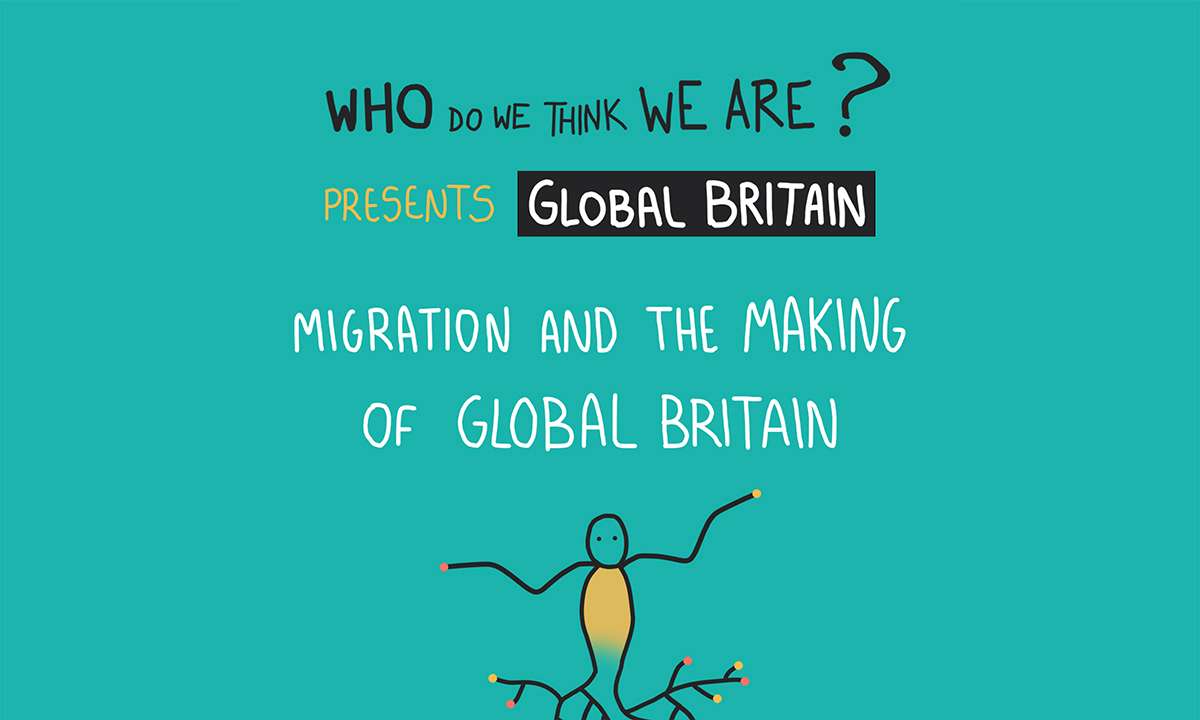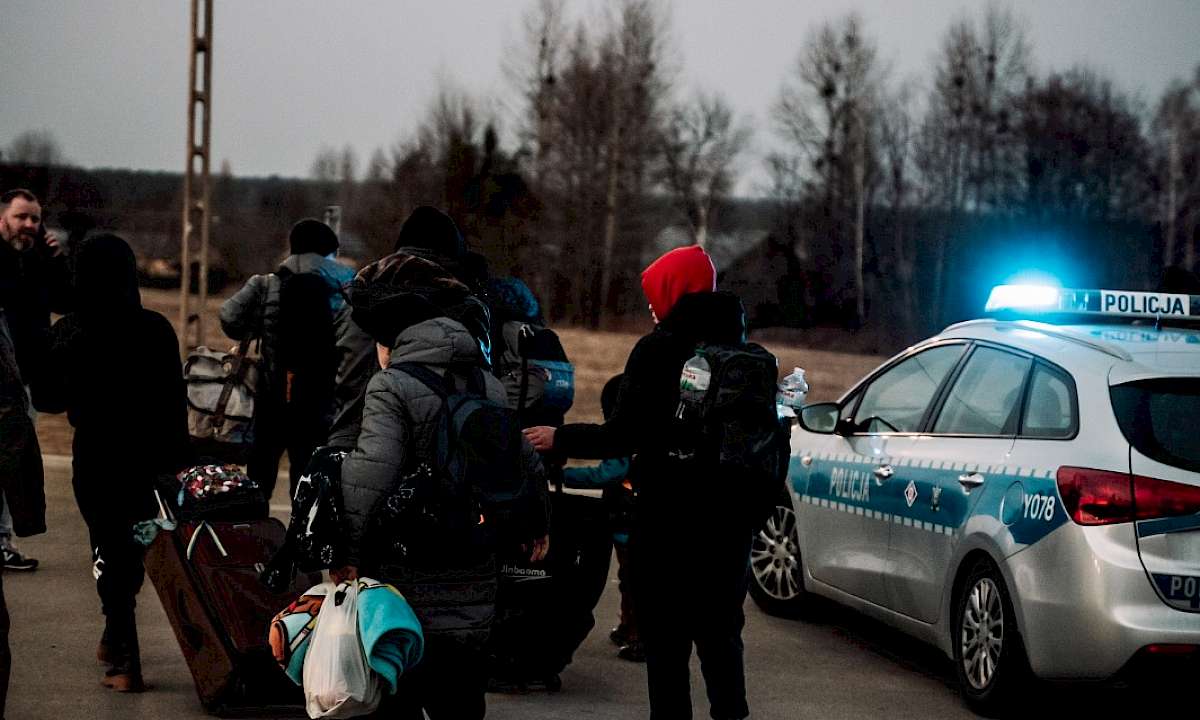
Oftentimes, we're used to thinking of criminal justice and migration control as being two separate systems that both have their own distinct objects: one supposedly corresponds to international law, and the other one is about the domestic [law]. But in reality, policing and bordering emerge as entwined projects of governance, under the same system of racial capitalism. […][P]olicing and bordering, or incarceration and deportation were historically not that easy to kind of disentangle and to separate, since they actually emerged together as key mechanisms through which states would attempt to control, coerce and dispossess those that were deemed to be disorderly and undeserving. As Angela Davis and Gina Dent quite cleverly have put it, the prison has in fact always been a border, and the border has been a prison.
— Ida Danewid
In the final episode of our podcast collaboration with Who do we think we are? we’re talking Global Britain. We consider the role of borders in the making of Global Britain through the lens of racial capitalism, looking at how mobility controls have been and continue to be deployed to produce the exploitable labour force necessary for capitalist accumulation.
Listen to the episode here.
Hear from MIGZEN researcher Elena Zambelli as she explains what we mean when we talk about ‘Global Britain,’ its political trajectory, and the role of coloniality within it. Ida Danewid, Lecturer in Gender and Global Political Economy at the University of Sussex, illustrates the relationship between racial capitalism and border regimes past and present, and some of the ways in which migratized people organize to resist to their inherent violence. Nando Sigona and Michaela Benson consider what a racial capitalism lens adds to understandings of the UK's new suit of humanitarian visas, and more broadly, to the role of race and migration in the making of Global Britain.
Ida Danewid’s opening quote draws a powerful parallel between states’ power to demarcate and enforce the normative boundaries of property and polity both internally and internationally, resulting in the creation of hierarchies of economic wealth and dispossession, (liberal notions of) freedom and exploitability, subjecthood and dependence. These class-based hierarchies are also heavily inflected by race and gender, where their interplay engenders and reproduces the stratified, predatory system of expropriation, extraction and accumulation going under the name of ‘racial capitalism.’
Today, in the UK as well as in many higher income countries, it is irregularised migrants that are made to forcibly occupy the bottom of these hierarchies – the particular conditions of their entry or stay constituting the grounds of their transformation into a reserve army of ‘docile’ (read: exploitable qua deportable) workers. Whilst migrants who have arrived through ‘legal and safe routes,’ such as Hong Kongers and Ukrainians, are endowed with a certain set of rights, including the right to work, protecting them (at least in theory) from the worst forms of labour exploitation, our research nonetheless shows that migration results in their loss of different forms of capital – amounting, in other words, to forms of forced expropriation. As Michaela explains,
I do think that we also have to think about what labour opportunities have been available to people who've come to the UK through those schemes, and repeatedly, work with both the Hong Kongers and the Ukrainians who are here on humanitarian protections, has highlighted that these people are often working in areas of the labour market that they don't apparently need skills for, but also which are far below their qualification level. And I think that, you know, obviously, I'm very well aware that this is a broader conversation around the deskilling of people who are migratized when they come into a country, but I think that that's worth reflecting on in respect to thinking about racial capitalism as well.
What the concept of racial capitalism does in relation to the analysis of contemporary migration, mobilities and border regimes, is that it surfaces the colonial roots of the unequal world system within which we are differently positioned, and the uses of practices of differentiation, categorisation and stratification as devices to divide and rule people under European colonial and neocolonial domination. As Nando posits,
this system of stratification […] is producing a kind of an atomization of positions within society, of the membership within society. And this is something that we have seen also, historically, in many ways. If you go back to the history of that regime of mobility within the British Empire at different stages, you will see how forced movement groups or the slavery or the forced mobility of groups from one area to another was constructed, often strategically as well, not just have a way of exploiting and extracting, but was also a way of divide and rule, so as a political tool in managing the colonial project itself.
Back then as much as now, these forces of atomization do not go uncontested, and people everywhere continue to coalesce and fight back to resist the racialized policing of their mobility, as well as the structural violence driving the movement of many in the first place. Ultimately, as Ida reminded,
it becomes possible to see the struggle for migrant justice as being part of a much bigger project of liberation and world-making, which is characterised among other things by the freedom to leave and the freedom to stay, and by the horizon of having a home in a world without enclosed borders.
Explore the previous episodes of the season, to find out how the redrawing of boundaries around both the British and EU imagined communities is entangled with a changing migration-citizenship regime, which continues to shape the lives of migrants and rewrites Britain’s migration story after Brexit.
You can listen to the podcast and the back catalogue, access our show notes, active listening questions and transcripts on our podcasts page.
And you can follow the podcast on all major podcasting platforms or through our RSS Feed
How to cite this blogpost:
Zambelli, E. (2024) Divide, extract and rule: Of capitalism, coloniality and migration, MIGZEN [Blog], 15 March 2024. Available online at: https://migzen.net/blog/divide-extract-and-rule-of-capitalism-coloniality-and-migration/. (Last Accessed: [add date here])






